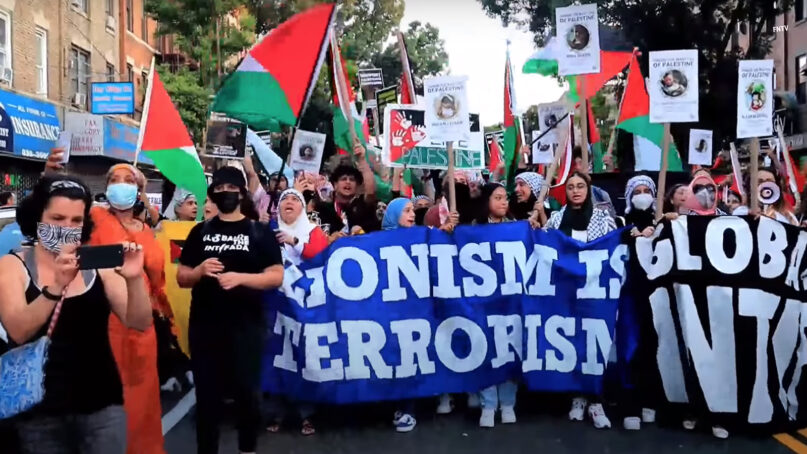(RNS) — Among the things most precious to me in my home is a leather-bound set of Shakespeare’s plays and sonnets.
The set of plays was a high school graduation gift from my great-aunt to my mother when she graduated from high school in the late 1930s. Ever since my mother’s death, it has belonged to me, and it has followed me into every home I have lived in over the years.
I find myself returning to my freshman year in high school, and my first study of Shakespeare.
The play in question was “Julius Caesar.” One scene has always terrified me — because Shakespeare was prescient about one of the crueler dimensions of the human condition.
It is that moment after the assassination of Caesar. Mobs of angry Romans are wandering the streets, looking for the conspirators.
They are seeking a conspirator whose name is Cinna. They find a man named Cinna, but he is not one of the conspirators. This Cinna is a poet.
“Truly, my name is Cinna.”
“Tear him to pieces, he’s a conspirator.”
“I am Cinna the poet, I am Cinna the poet!”
“Tear him for his bad verses, tear him for his bad verses!”
“I am not Cinna the conspirator.”
“It is no matter, his name’s Cinna, pluck but his name out of his heart, and turn him going.”
“Tear him, tear him!”
That scene terrifies me because it speaks to crowd psychology, how crowds can whip themselves into irrational frenzies. It makes no difference that there is every difference between Cinna the conspirator and Cinna the poet. His name is Cinna. Tear him, tear him.
They just want blood.
This past week, there was an anti-Israel protest in Brooklyn. It was promoted by, among other groups, Jewish Voice for Peace, an anti-Israel group.
The demonstrators chanted: “We don’t want no two states, we want all of it.” “From the river to the sea, Palestine will be free.”
The gloves are off; the pretenses, gone.
They want a world without Israel.
Their banners: “Zionism is terrorism”; “We will free Palestine within our lifetime.”
And: “Globalize the intifada.”
“Intifada” is Arabic for uprising or rebellion. In its most current usages, it refers to organized acts of violence and terrorist attacks against Israelis. There have been more than a thousand victims.
The intifada has centered itself on Israel proper.
No longer.
“Globalize the intifada” means that Jews will be uncomfortable and unsafe, wherever they are.
Let me remind you: Jews. Not Israelis. Not Zionists.
Jews.
Let us imagine the scenario. On the Upper West Side, for example. Protesters walk through the streets, accosting passersby.
You think they will ask: “Are you Israeli?”
No. They will be going after Jews. How they will know who is Jewish is a whole other question.
But, let us imagine the frightening dialogue.
“Are you Jewish?”
“Yes, but … ” (guilty with an explanation).
- “Yes, but I am not affiliated.”
- “Yes, but I am a cultural Jew.”
- “Yes, but I am highly critical of certain Israeli policies.”
- “Yes, but I support BDS.”
- “Yes, but I am a leftist Jewish anti-Zionist activist.”
- “Yes, but I am a member of Satmar, a Hasidic sect that believes that Zionism is treif.”
I am a victim of history. This triggers every fear of Jewish vulnerability that is within me.
What else did you think that “globalize the intifada” was supposed to mean? A letter-writing campaign?
I am not Cinna the conspirator! I am Cinna the poet!
Imagine a young Jew named David. “I am not David, the Zionist Jew! I am David — the anti-Zionist, unaffiliated, uncaring, unconnected Jew. I am not part of the conspiracy!”
“It is no matter, he is a Jew, pluck but his identity out of his heart, and turn him going.”
“Tear him, tear him!”
OK, OK. Perhaps it will not be violent; it will likely not be.
But, there are different, far subtler kinds of violence. We no longer need the violence of the physical mob. The violence of the virtual mob will do just fine, thank you very much.
Like, for example, the story of the pop star Billie Eilish. She released targeted videos to promote her new album. In one video, she said: “Hi Israel, this is Billie Eilish, and I’m so excited that my new album, ‘Happier Than Ever,’ is out now.”
The singer is not “happier than ever” — especially with thousands of hate messages, accusing her of supporting “genocide against Palestinians.”
The Bard of Avon understood the terror of the mob.
To even bear the same name as one of the conspirators was to condemn Cinna the poet to death.
Do you think that it will be that different with the Jews?






